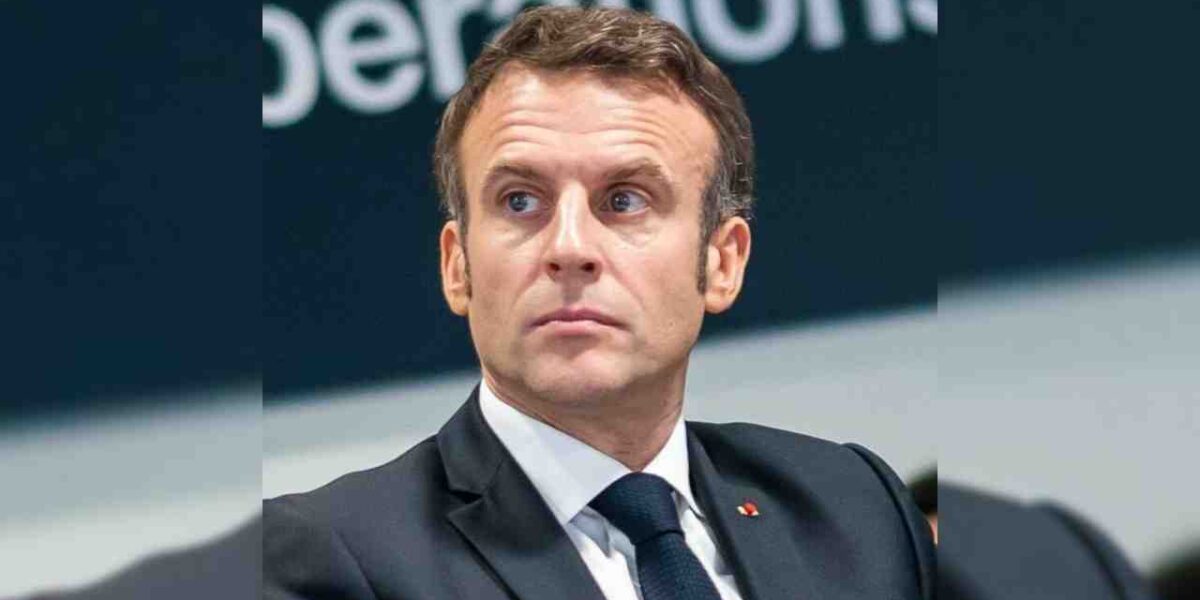Thunderous clapping and the sounds of hundreds of people standing to celebrate rang through the Château de Versailles the evening of March 4 as Yaël Braun-Pivet, President of the French National Assembly, read out the results of a vote to enshrine the right to abortion in France’s Constitution. 780 members of the French National Assembly and Senate voted in favour of abortion being a constitutional right, well surpassing the two-thirds minimum required to amend the country’s Constitution. France is now the first country to explicitly recognize the right to abortion in its national charter.
French parliamentarians were not the only ones cheering as the announcement was made. The assembly at Versailles was live streamed to a crowd gathered at Trocadero Plaza, in full view of the Eiffel Tower, which erupted in applause, hooting, and hollering, and dancing to Beyoncé’s “Run the World” song. The Eiffel Tower also began to sparkle as the words “#MyBodyMyChoice” were projected onto it.
“For too many years, the fates of women were decided by others,” French president Emmanuel Macron said the morning of International Women’s Day after officially inscribing the right to abortion in France’s Constitution. “France today became the only country in the world to have a constitution that explicitly protects the right to abortions in all circumstances.”
Events in the US over the past two years, particularly the repealing of Roe v. Wade, galvanized the French government to pursue the constitutional change. Laws remain much more repealable than a constitutional amendment, so many in France saw the government’s move as an additional layer of protection for women’s rights rather than a major step to affirm abortion access.
Marine Le Pen, the official opposition leader in France, has argued that Macron’s move to constitutionally guaranteed abortion rights was no more than a political move designed to score points because of the widespread support for abortion in France. Others have called the move the result of an “imported debate” that is more reactionary to circumstances overseas than a response to an actual issue in France.
Macron, however, sees the restrictions to abortion in the US and other EU member countries as exactly the reason France had to pursue the change.
“The backwards steps of our time made it a necessity and an emergency because everywhere in the world, including in the greatest democracies, including within our neighbors in Europe we are observing a step backward in the right to abortion, in women’s rights, and a rise of those who refuse women the right to love, to choose, to live freely,” Macron added.
Abortion and the EU
There are only a few places in Europe that maintain highly restrictive laws surrounding abortion, including Poland and Monaco who only allow women to get an abortion if their life is at risk, the baby has significant fetal anomalies, or the pregnancy is the result of rape. Meanwhile, Andorra, Malta, and San Marino have outright banned abortion.
Even in countries where abortion is legal, restrictions reminiscent of those in the US, such as regulations that create significant barriers to access, have been adopted, rendering legal abortion essentially impossible to access.
In Hungary, a decree went into effect in 2022 that now forces pregnant people to see “fetal vital signs” in an attempt to dissuade women from getting abortions. Now, Hungarian women often travel to Austria for the procedure because the process in Hungary has become too difficult.
The situation in Italy is very similar. Abortion was legalized in 1978 but the law on abortion also gives doctors, nurses, and other medical staff required for the procedure the right to conscientiously object to performing abortions. Though not in itself the issue, more than 60 per cent of medical staff in Italy have said they conscientiously object, with some regions in the South seeing up to almost 100 per cent.
This reality is driving Macron to pursue the abortion question at the international level.
“Today is not the end of the story, it is the beginning of a fight,” Macron said at the ceremony on International Women’s Day. “We will lead this fight in our continent, in our Europe [….] This is why I wish for the inscription of this guaranteed liberty to access to abortion in the Charter of Fundamental Rights of the European Union.”
The purpose of The Charter of Fundamental Rights of the European Union is to establish standards across the EU that new members will also accept before joining. Any changes to the Charter will have to go through the European Parliament, so Macron has a lot of work to do if he truly wants to add abortion to the Charter.



